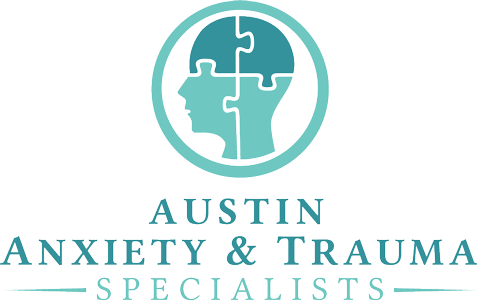In our relentless quest for happiness, we often overlook a powerful tool hidden in plain sight—gratitude. It’s easy to get caught up in what we lack or what could be better, especially when stress, responsibilities, or the unpredictable events of life weigh us down. And social media isn’t making things any easier, often worsening feelings of inadequacy, isolation, fear of missing out (FOMO), and even depression and anxiety. So how can something as simple as gratitude make a difference?
Imagine ending your day by recalling a moment that brought you a smile—perhaps a kind word from a colleague, the serene sunset on your drive home, or having the funds to pay for an unexpected bill. This simple act of recognizing and appreciating the good in your life isn’t a gimmick; it’s a powerful tool scientifically proven to enhance your mental health. Let’s get into how gratitude works and how you can start benefiting from practicing it.
What is gratitude?
Gratitude extends beyond the polite ‘thank you.’ It is a deeper emotional appreciation for what we have or receive, whether tangible or intangible. This could mean acknowledging the beauty around us, the people in our lives, or even our own abilities and qualities. Gratitude is recognizing the value in these gifts and how they contribute to our lives. However, it is not about ignoring or glossing over the negatives but rather about choosing to focus on the positives, which provides a more balanced perspective on our daily experiences.
Research consistently shows that gratitude can lead to a happier, healthier life. It’s associated with:
- More resilience to stress
- Improved physical health
- Fewer bodily aches and pains
- Better sleep
- Reduced symptoms of anxiety and depression
- Changes in perspective on life
- Greater satisfaction in life
Read: 5 Common Anxiety Disorders That Are More Than Just Worry
The science behind why gratitude works
The benefits of gratitude are not just anecdotal—they are strongly supported by scientific research. Studies have found that gratitude can significantly increase happiness and reduce depression. For instance, a study by Dr. Robert Emmons, a leading gratitude researcher, found that writing gratitude journals consistently can enhance overall well-being and optimism.
Practicing gratitude can also lead to better sleep patterns. By spending just a few minutes jotting down grateful sentiments before bed, people often report faster time to sleep and improved sleep quality. This connection likely stems from the more positive thoughts that displace anxiety and rumination, common culprits behind sleep disturbances.
By focusing on the positive aspects of life, gratitude effectively changes the neural structures in the brain, making feelings of appreciation and positivity more automatic over time. Experts suggest that this may be due to gratitude’s ability to enhance dopamine and serotonin, neurotransmitters that play a critical role in our emotions and feelings of pleasure and contentment.
It’s clear how influential gratitude can be on your mental health—but how can we make gratitude more than just an occasional practice?
Read: 8 Ways To Incorporate Mindfulness Into Your Daily Life
Day-to-day gratitude exercises
Incorporating gratitude into daily life is simpler than it might seem. It doesn’t require grand gestures or a lot of time. One study suggests that a six-week intervention of practicing gratitude 15 minutes a day, for five days each week is effective for mental health benefits. Here are three exercises you can explore during your fifteen minutes:
Three good things journal: Every night, write down three good things that happened during the day and why they occurred. This practice trains the mind to focus on positive events, which can shift perspective and increase contentment.
Gratitude prompts: Keep a set of prompts that encourage you to think about different aspects of your life for which you can be grateful. Here are a few to get you started:
- What element of nature did I notice today, and why am I thankful for it?
- Who is someone who helped me recently, and how did they assist me?
- Who made me feel connected or supported today, and why am I grateful for this community?
- What personal strength did I rely on today, and why am I thankful for this attribute?
- What creative actions did I take or observe today, and why am I thankful for creativity in my life?
Reflection moments: Take a few minutes each day to reflect on your interactions and the day’s events. This could be during a morning routine, a quiet break during the day, or before bedtime. Even though this practice may seem to take little effort, the key here is consistency and mindfulness during these moments.
Read: 9 Journaling Strategies To Relieve Stress & Boost Self-Awareness
Practicing gratitude can be challenging
Despite its benefits, gratitude is often met with skepticism. Some may view it as a trivial, overly optimistic, or even toxic approach to serious life challenges. Others might struggle with starting or maintaining a regular practice amid a busy life.
Skeptical? Overcoming skepticism often starts with understanding that gratitude is not a panacea but a tool—one of many in your mental health toolbox. It does not replace professional therapy or medical advice but complements it by enhancing your resilience and perspective.
Can’t seem to get started? For those struggling with consistency or motivation, setting reminders or integrating gratitude practices into already established routines can be effective. It’s also important to be patient with yourself. Like any skill, cultivating gratitude takes time and practice.
If you’re looking for more personalized strategies or need support in overcoming specific mental health challenges, Austin Anxiety and Trauma Specialists are here to help. Book a consultation with us today, and we’ll give you the tools you need for building a resilient, satisfying life. It can get better. We can help.






